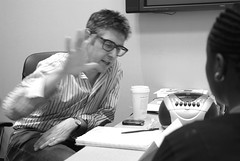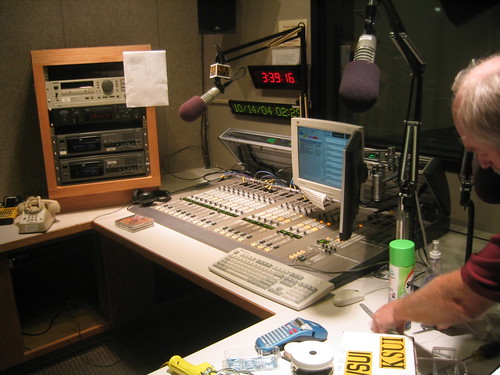I’ve posted about William Elliot Whitmore before, and he made an appearance on the last Six Song on RadioZoom[rz#126]. When I pulled down my feeds this morning, Benjamin Cossel made a raving review on BlogCritics.org about a recent show of Whitmore’s in Ohio. I think he hit the nail on the head.
Bob Dylan, New York City 1961. Tom Waits, San Diego, early 1970s. What must it have been like to see these legendary performers when they were still unknowns? When the gathered crowd was small and you were so close to the artist that you could make a request in a conversational tone?
It struck me, as I watched and listened to William Elliot Whitmore, Feb 19 at The Basement in Columbus, Ohio on the kick-off date of a national tour, that this was what it must’ve been like; to see a performer at such an early point in their career who, in your heart of hearts, you know is destined for greatness with only 20 or so others are there to share the experience with you.
In many an article about him, Whitmore is compared to such legends as Waits and Johnny Cash. I’m sure it’s more to do with the deep gravelly voice and genre fusions than actual stylistic similarities – one thing that does run parallel with the Iowa born and raised Whitmore and those who transcend mere greatness is the honesty in their lyrics. [blogcritics]
Keep reading the rest of his review for sure, but oddly enough, it was one of his songs that was the last things I listened to as I drove out of Iowa to make my way to Vancouver. I think it might have been his song “Midnight”, but it’s hard to recall now. He was doing a live performance on the same radio station that I used to work at, WSUI.
It was the very same program that I had the chance of shaking the guy’s hand and running his sound for as well, nearly a year or so before my departure. That live remote could have been one of the first live programs that I ran by myself, calling the shots on the technical end and managing the part-time student help. I could be completely wrong because my time there is almost like a blur now, but it’s crazy how music can trigger your synapses like that.


